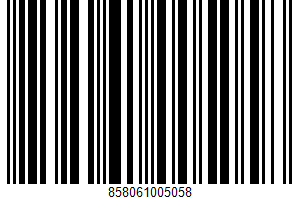Salted Caramel Brownie - calories
Manufacturer Other
Product Information and Ingredients
Salted Caramel Brownie is manufactured by Other with a suggested serving size of 0.25 BROWNIE (38 g) and calories per serving. The nutritional value of a suggested serving of salted caramel brownie includes 15 mg of cholesterol, 0 mg of sodium, 23 grams of carbohydrates, 0.5 grams of dietary fiber, 16 grams of sugar and 2 grams of proteins.
The product's manufacturer code is UPC: 858061005058.
This product is high in sugars.
Calories from fat: a total of % of the calories in the suggested servig of this product come from fat.
Sugars 24% of DV
A serving of 0.25 BROWNIE (38 g) of salted caramel brownie has 24% of the recommended daily intake of sugars.
Ingredient List
- Sugar
- Enriched Flour (wheat Flour
- Malted Barley Flour
- Niacin
- Reduced Iron
- Thiamine Mononitrate
- Riboflavin
- Folic Acid)
- Evaporated Milk (milk
- Dipotassium Phosphate
- Carrageenan
- Vitamin D3)
- Butter (pasteurized Cream
- Salt)
- Semisweet Chocolate (sugar
- Chocolate
- Cocoa Butter
- Soy Lecithin
- Natural Flavor)
- Pecans
- Corn Syrup
- Palm Oil
- Dark Chocolate (sugar
- Chocolate
- Cocoa Butter
- Natural Flavor
- Soy Lecithin)
- Liquid Sugar (sugar
- Water)
- Nonfat Milk
- Contains Less Than 2% Of Each Of The Following: Corn Starch
- Cocoa Processed With Alkali
- Salt
- Whey
- Leavening (baking Soda
- Sodium Acid Pyrophosphate
- Monocalcium Phosphate)
- Butter
- Natural Flavors
- Xanthan Gum
- Soy Flour
- Mono- And Diglycerides With Citric Acid Preservative
- Spray Dried Soymilk Powder
- Soy Lecithin
- Mono- And Diglycerides
- Carnauba Wax

Nutrition Facts
Serving Size 0.25 BROWNIE (38 g)
| Amount Per Serving | ||
|---|---|---|
| Calories | Calories from Fat 0 | |
| % Daily Value* | ||
| Total Fat 9g | 5% | |
| Saturated Fat 4.5g | 9% | |
| Trans Fat 0g | ||
| Cholesterol 15mg | 2% | |
| Sodium 0mg | 0% | |
| Total Carbohydrate 23g | 3% | |
| Dietary Fiber 0.5g | 1% | |
| Sugars 16g | ||
| Protein 2g | ||
| Vitamin A 1% | Vitamin C 0% |
| Calcium 1% | Iron 2% |
* Percent Daily Values are based on a 2,000 calorie diet.
Nutrition Facts
Serving Size 100g (about 3.52 oz)
| Amount Per Serving | ||
|---|---|---|
| Calories | Calories from Fat 0 | |
| % Daily Value* | ||
| Total Fat 23.7g | 14% | |
| Saturated Fat 11.8g | 23% | |
| Trans Fat 0g | ||
| Cholesterol 39mg | 5% | |
| Sodium 632mg | 10% | |
| Total Carbohydrate 60.5g | 8% | |
| Dietary Fiber 1.3g | 2% | |
| Sugars 42g | ||
| Protein 5g | ||
| Vitamin A 2% | Vitamin C 0% |
| Calcium 3% | Iron 6% |
* Percent Daily Values are based on a 2,000 calorie diet.
Salted Caramel Brownie Nutritional Value
| Nutrient | Suggested Serving 0.25 BROWNIE (38 g) | Standard Serving 100g |
|---|---|---|
| Protein | 2 g (1%) | 5.26 g (4%) |
| Total Lipid (fat) | 9 g (5%) | 23.68 g (14%) |
| Carbohydrate, By Difference | 23 g (3%) | 60.53 g (8%) |
| Fiber, Total Dietary | 0.5 g (1%) | 1.3 g (2%) |
| Sugars, Total | 16 g (24%) | 42.11 g (64%) |
| Calcium, Ca | 40 mg (1%) | 105 mg (3%) |
| Iron, Fe | 1.08 mg (2%) | 2.84 mg (6%) |
| Sodium, Na | 240 mg (4%) | 632 mg (10%) |
| Vitamin C, Total Ascorbic Acid | 0 mg (0%) | 0 mg (0%) |
| Vitamin A, Iu | 100 IU (1%) | 263 IU (2%) |
| Fatty Acids, Total Saturated | 4.5 g (9%) | 11.84 g (23%) |
| Fatty Acids, Total Trans | 0 g (0%) | 0 g (0%) |
| Cholesterol | 15 mg (2%) | 39 mg (5%) |
Footnotes
Percent daily values are based on a 2,000 calorie reference diet. Factors like age, gender and level of physical activity may affect your daily required values.
The editorial opinions regarding food value or quality in this website are given without warranty, and are not intended to replace medical advice or a nutritionist guidance.
Dietary Recommendations
A healthy eating pattern that accounts for all foods and beverages within an appropriate calorie level could help achieve and maintain a healthy weight and reduce the risk of chronic disease. Healthy eating habits include the following:
- Vegetables from all subgroups, including dark, green, red and orange vegetables and also beans and peas
- A variety of whole fruits
- Grains with at least half of which are whole grains
- Low or fat free dairy products, including milk, yogurt, cheese and/or fortified soy beverages
- Protein foods, including seafood, lean meats and poultry, eggs and nuts
- Oils with limited amounts of saturated fats and trans fats, added sugars, and sodium
